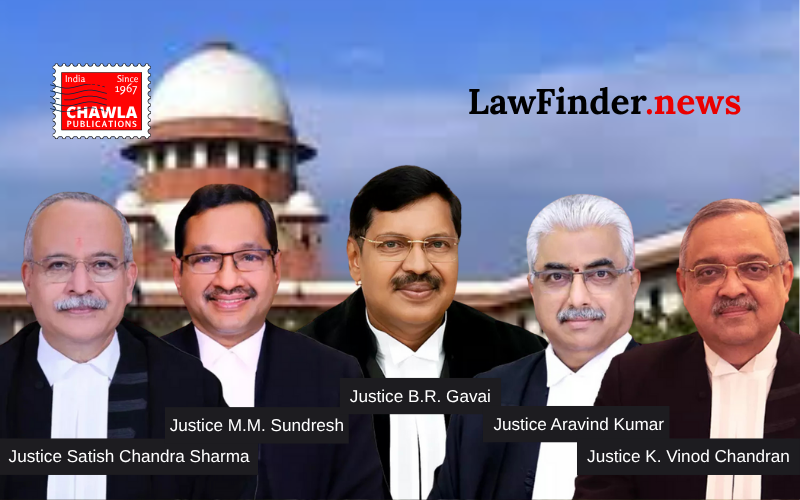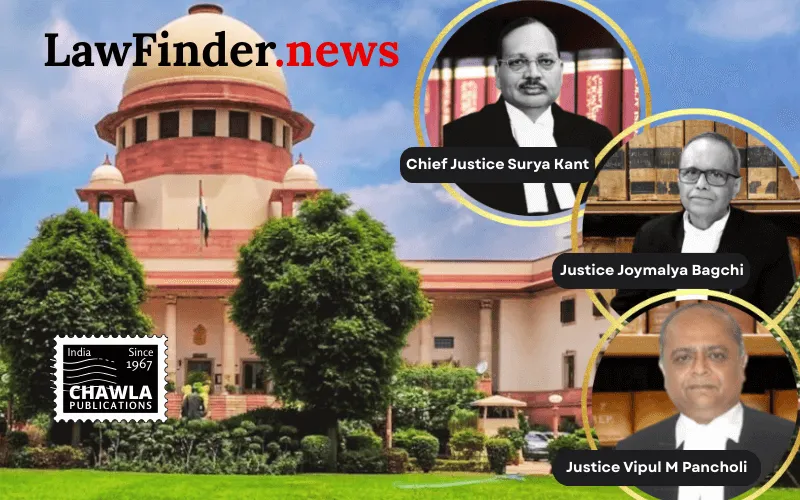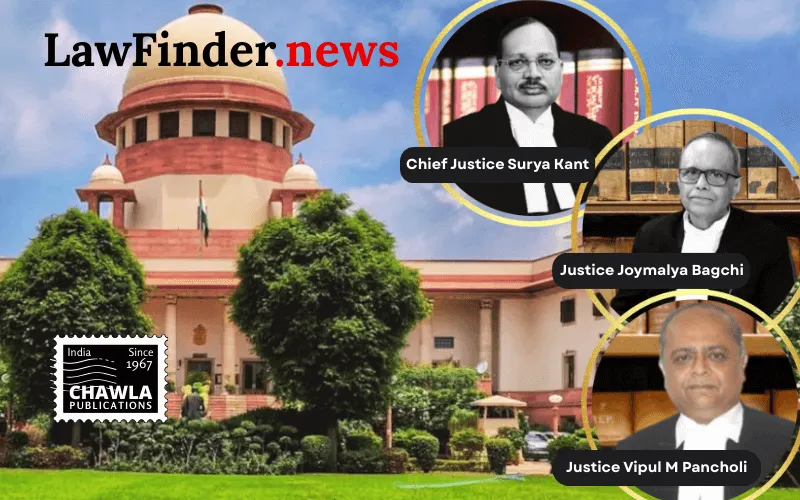Supreme Court Constitution Bench Rules Judicial Officers with Combined 7 Years Experience Eligible for Direct Recruitment as District Judges. Supreme Court overrules Earlier Precedents, Declares Exclusion of In-Service Judicial Officers from Direct Recruitment Quota Violates Articles 14 and 16; Sets Minimum Age at 35 and Calls for Uniform Rules Within Three Months
In a path-breaking judgment delivered on October 9, 2025, a Constitution Bench of the Supreme Court of India, headed by Chief Justice B.R. Gavai and comprising four other judges, has clarified the eligibility criteria for appointment as District Judges under Article 233 of the Constitution. The judgment resolves long-standing ambiguity and conflicting precedents regarding whether judicial officers already in service can be considered for direct recruitment against posts reserved for advocates with seven years’ practice.
The Court held that judicial officers who have a combined experience of seven years as advocates and judicial officers are entitled to apply for direct recruitment as District Judges. The eligibility of such candidates must be assessed at the time of application. This interpretation aligns with the constitutional mandate of equality (Article 14) and equal opportunity in public employment (Article 16).
The Court overruled earlier judgments, notably from Satya Narain Singh (1985) to Dheeraj Mor (2020), which had interpreted Article 233(2) restrictively to exclude in-service judicial officers from competing for the quota reserved for advocates. The Court emphasized that the words “a person not already in the service of the Union or of the State” in Article 233(2) must be given effect and cannot be rendered redundant by a narrow reading.
The judgment highlights that Article 233(1) empowers the Governor of the State, in consultation with the High Court, to appoint District Judges by promotion or direct recruitment from two streams: persons already in the judicial service and advocates or pleaders with at least seven years’ standing. While Article 233(2) prescribes eligibility conditions only for advocates, it does not exclude judicial officers from direct recruitment. It leaves the framing of eligibility norms for in-service candidates to State Governments and High Courts.
The Court directed all States to amend or frame uniform rules within three months, prescribing that candidates in judicial service must have a combined experience of seven years as advocates and judicial officers. The minimum age for all candidates-whether advocates or in-service judicial officers-applying for direct recruitment must be fixed at 35 years to maintain parity and a level playing field.
The judgment also rejects the notion of a “quota” reserved exclusively for advocates, observing that such reservation would be unconstitutional. Instead, the focus must be on merit-based selection from a broad talent pool, including meritorious judicial officers.
The Court underscored the constitutional doctrine of separation of powers and the independence of judiciary as foundational to its interpretation. Appointment to the District Judiciary is a sovereign judicial function, and judicial officers cannot be treated as mere State employees barred from competing for direct recruitment.
This decision is expected to open opportunities for many judicial officers who previously were compelled either to resign to apply for direct recruitment or were excluded altogether. It also addresses the anomaly where Government Advocates and Public Prosecutors, who continue to practice law, were allowed to compete for direct recruitment, while judicial officers were not.
The judgment is prospective in operation and does not disturb completed selection processes or appointments made before the date of this judgment, except where interim orders apply.
Senior advocates and counsel on both sides were heard extensively, and the Court acknowledged the meticulous assistance of nodal counsel and legal teams.
The ruling is a significant step toward enhancing the quality and efficiency of the District Judiciary by ensuring that merit prevails and talented judicial officers have equal opportunity to advance.
Bottom Line:
Judicial officers with combined experience of seven years as advocates and judicial officers are eligible for direct recruitment as District Judges; exclusion of in-service candidates from direct recruitment violates Articles 14 and 16
Statutory provision(s): Article 233(1), Article 233(2), Article 233-A, Article 234, Article 235, Article 236, Article 50, Article 14, Article 16 of the Constitution of India, Bar Council of India Rules (Rule 49)
Rejanish K.V. v. K. Deepa, (SC)(Constitution Bench) : Law Finder Doc Id # 2791309




